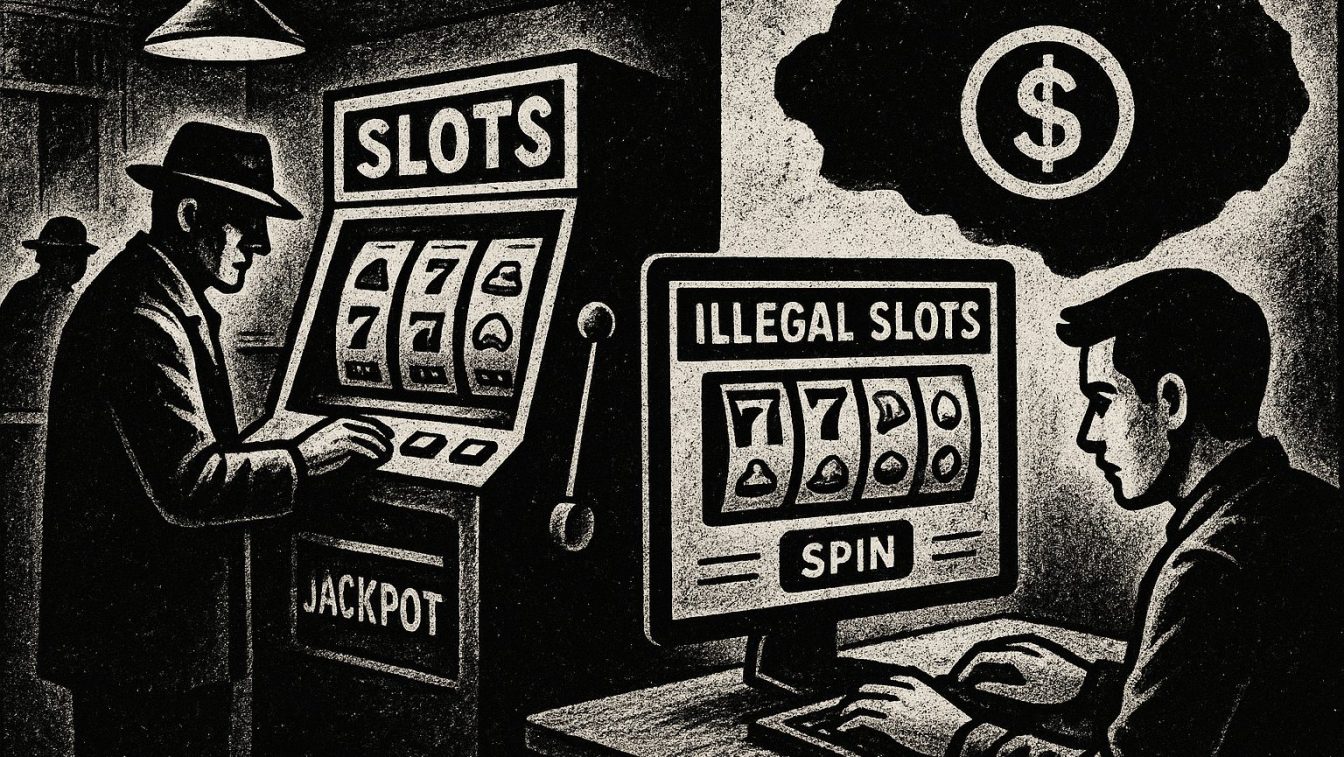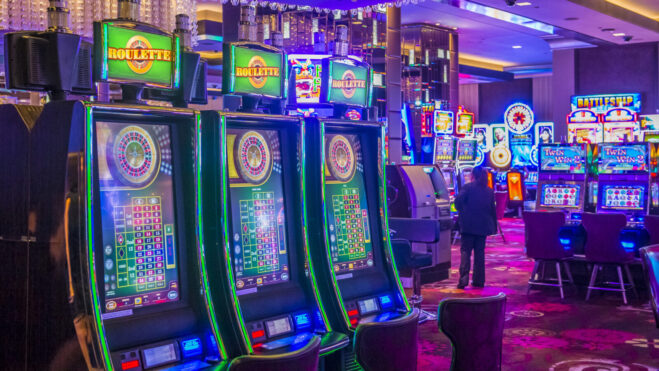Crypto Casinos: 10 Things You Need To Know
The innovations, the hesitations, the lack of regulations, and more
5 min

In an age in which the gambling industry seems to get shaken up every 15 minutes, one of this week’s big flip-everything-on-its-head moments came early Tuesday morning, when we learned Underdog Sports had partnered with Crypto.com to gain an entry into the prediction market space.
And that would have been a perfect lead for an article about crypto casinos … if Crypto.com had anything to do with crypto casinos.
But it doesn’t.
It’s all very confusing.
Crypto.com is a cryptocurrency exchange and payment services platform. It is also now a prediction market that is regulated in the U.S. by the Commodity Futures Trading Commission (CFTC). It also paid $700 million for the naming rights to what once was the Staples Center in L.A. But it is not a crypto casino.
Crypto casinos are, according to some, the next big thing in online gaming. So those of us connected to the U.S. gambling industry would be wise to wrap our minds around them (especially anyone who didn’t know until five paragraphs ago that Crypto.com is not a crypto casino).
Here are 10 things to know — some basic, some less basic, some rather surprising — if you want to be able to hold a halfway intelligent conversation about crypto casinos:
1. Crypto casinos are not legal/regulated in the US
Real-money online casinos are only currently regulated in seven states anyway, but as for crypto casinos — online casinos on which you deposit and withdraw assorted cryptocurrencies — nope, not regulated anywhere in the States. (Although not explicitly banned, either.)
Notably, though, three states have legalized the use of cryptocurrency to fund regulated online gambling accounts. These accounts would all be for online sports betting only, however, because the three states are not regulated iGaming states.
In Wyoming, crypto is legally recognized as an approved payment method for sports wagering.
And in Colorado and Virginia, some operators allow cryptocurrency deposits, as long as they go through a payment-processing partner that converts the money into legal tender. Withdrawals cannot be made in crypto, however.
Again, just like the Crypto.com bit at the top of the article, this is information that has no direct connection to crypto casinos. (We promise the rest of this article will actually be about crypto casinos.)
2. Crypto casinos allow user anonymity
Regulated online gaming companies require all sorts of personal information from customers — notably needing to verify you’re a real person who is of legal gambling age.
There are no such requirements at most crypto casinos, which promote anonymity as a benefit, and along with it boast of personal security. Users don’t need to share bank account information or credit card numbers — just a crypto wallet address. There are some who believe this lowers the fraud risk.
3. That anonymity leads to greater money-laundering concerns
The potential to use crypto casinos for money laundering is seen as a significant hurdle to regulation and acceptance in the U.S., as author and crypto/blockchain expert Omid Malekan explained to Casino Reports last November.
Malekan doesn’t necessarily think the sites are used heavily for money laundering, but the anonymity aspect helps open that door. “Regulators can always force crypto casinos to KYC [Know Your Customer] all their users, file suspicious activity reports, and so on,” he said, “but such restrictions mostly defeat the point of crypto. That’s not to say crypto is rife with money laundering; I consider [anti-money laundering]/KYC regimes as applied to non-crypto solutions as a failed policy. I’m just saying they are incompatible.”
4. The anonymity also leads to greater responsible gambling concerns
Malekan mentioned the lack of strict KYC rules for crypto casinos. It’s all a fairly logical “if/then” calculation: If there aren’t KYC rules and required RG protocols, then it’s easier for a customer to spiral into problem gambling.
It must be noted that even in a regulated environment with all the mandated protections, RG is, at best, a work-in-progress. But the potential for problems is typically greater in an unregulated setting — even though, to their credit, some crypto casinos have added self-exclusion tools and RG education materials.
5. Crypto casinos offer all the usual games — plus innovations
Most crypto casinos offer the same types of games you’ll find on regulated iCasinos. From slots to blackjack to roulette to sports betting, whether on FanDuel and DraftKings or BetHog and Monkey Tilt, you’ll find largely the same options.
But crypto casinos have proven they can go a step further, in terms of innovation, in part because there aren’t the same rules or state agencies restricting what they can do. For example, crypto casinos are integrating virtual reality into live-dealer games. Navigating yellow and red tape is part of the cost of doing business in regulated environments.
6. Withdrawals and deposits are faster at crypto casinos
The word “faster” is relative. At many regulated U.S. online sportsbooks and casinos, deposits can be completed in seconds, and withdrawals can hit a player’s external account nearly instantaneously. But at others, there can be a fair amount of friction moving funds in either direction and some make customers wait 24 hours or longer to complete withdrawals.
Whichever extreme you may be comparing it to, the fact is that with crypto casinos, currency moves quickly. (Although it can vary a bit depending on the specific currency.) There’s no need for banks or payment processors to get involved. Crypto casinos have direct wallet connections, making it easy to get funds on or off the site. We are increasingly a short-attention-span, need-for-immediacy society, and crypto casinos hold particular appeal for younger users in this regard.
7. The minimum deposits, however, are higher
Again, it varies from operator to operator. But at many regulated U.S. sites, you can fund an account for as little as $5 at a time.
Most crypto casinos start a good bit higher than that. Of course, the amounts aren’t measured in dollars; they’re measured in Bitcoin, Ethereum, Tether, etc. But converted to dollars, crypto casinos tend to start in the range of $20-$30.
8. On-site coin value is not stable at crypto casinos
Essentially, crypto casinos offer gambling on top of gambling. You can play the casino games, sure. But even when you aren’t playing the games, the money you have on the site can gain or lose value.
That’s true of dollars on a regulated site, too, of course. The value of the $500 in your BetMGM account may be a few pennies higher relative to the British pound tomorrow, or a few pennies lower relative to if you had that same money in a savings account.
But with cryptocurrencies, there’s a lot more volatility. Crypto casino players are gambling even while they’re sleeping, in a sense.
9. Crypto gambling is said to be an $81.4 billion industry
According to YieldSec, a “technical intelligence platform for online marketplaces,” the unregulated crypto gaming industry generated that number you see in large type above in 2024 revenue.
Yet some observers believe this figure is drastically overstated. Paul Leyland of Regulus Partners puts the number closer to $16 to $20 billion in gross gaming revenue. He added that it is quite a difficult thing to measure accurately.
“Defining what is a crypto-gambling market is extremely complicated,” Leyland said. “For example, how do you treat someone who pays in fiat, but wins crypto. That would mean crypto would have a negative value footprint.”
For argument sake, if that $81.4 billion number is accurate, that makes it bigger business than the entire regulated U.S. gaming industry, which the American Gaming Association says scored $72.04 billion in revenue last year.
10. You’re not going to believe how many crypto casinos there (supposedly) are
Again, we’re taking YieldSec’s word for it here, but they told Forbes this summer that they “have identified tens of thousands of crypto casinos worldwide.”
That seems nearly impossible. Informed sources tell us it’s more likely in the hundreds. Still, YieldSec’s claim is worth considering as one potential data point.
Whatever the exact number, crypto casinos are huge, and getting more huge. Their future in any legal, regulated environment is as uncertain as the value of any random digital coin tomorrow. But if sweepstakes casinos and prediction markets have taught us anything over the past year or so, it’s that the distance between outsider and insider, between black-market and gray-market, can be closed with the speed of a digital transaction.





